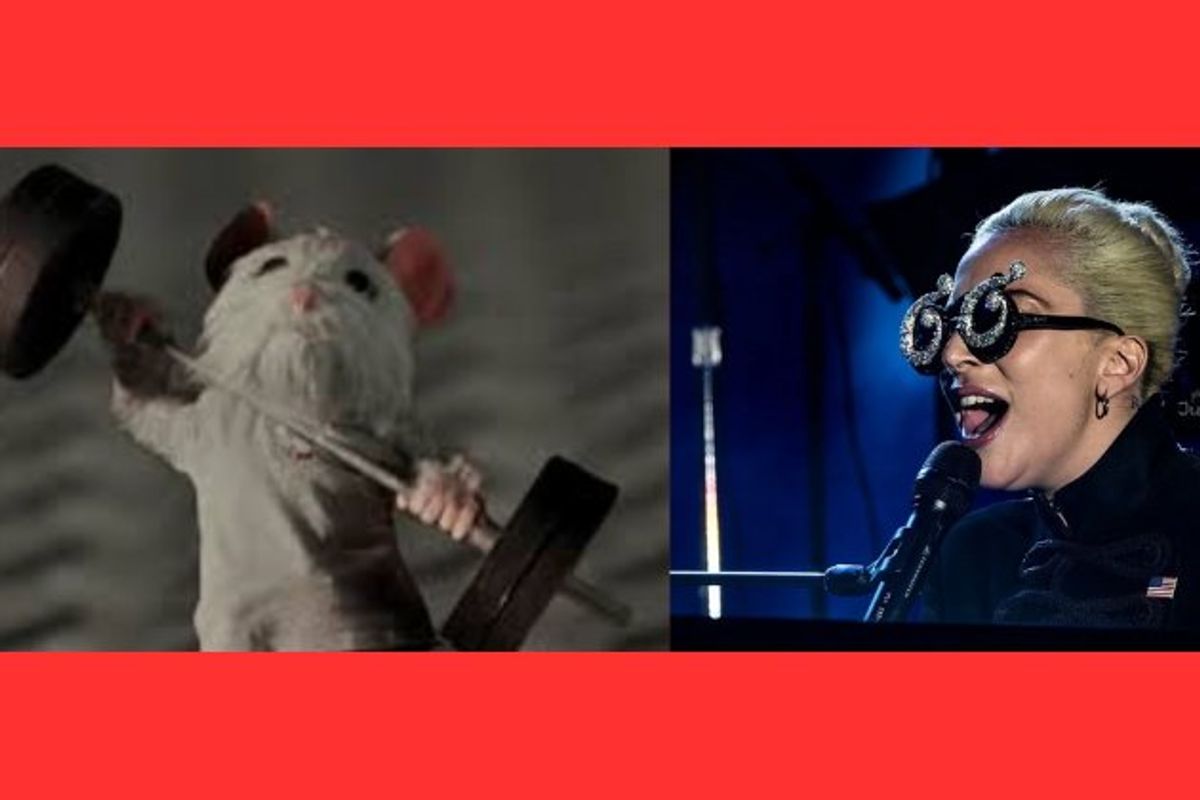Fans are begging Lady Gaga to make SNL song about a weightlifting mouse her next single
"Pip" is the surprise instant classic of the year.
Lady Gaga's surprisingly touching "Pip" song is a massive hit with fans
Leave it to Lady Gaga to record a song about an animated mouse for a comedy sketch on Saturday Night Live,, and have it, arguably, be one of the best songs ever—at least according to her fans.
Gaga was both host and musical guest on the show this past week to great reviews. Vulture writer Ben Rosenstock wrote, Gaga's "easy charm and commitment make for one of the most animated episodes of season 50." Adding, "What comes across here, even more than Gaga's talent, is her sincerity—an idea tonal match for a series of pretty strange (complimentary) sketches."
In one such sketch (actually a short by Dan Bulla), Gaga stars as a high school student who urges a tiny mouse named Pip to enter a weightlifting contest. It begins with a teacher (played by James Austin Johnson) asking students to get their parents to vote yes on the referendum to get the roof fixed. He then reminds them about the school's weightlifting competition and urges everyone, no matter their gender or size, to participate.

But when a bully (played by Marcello Hernandez) says, "Yeah, except Pip," the camera pans over to an adorably sad mouse at a nearby desk. Everyone laughs—except Gaga, who sighs heavily.
But it gets even more delightfully absurd. It then segues into a music video wherein she sings Pip a song about how, if he sets his mind to it, he can achieve anything he wants in life. At one point, Pip walks on a moving globe, while Gaga sings, "The other kids may laugh at you, and treat you like a fool. But I believe you can win the weightlifting contest at our school."
As Pip looks up at her with soulful eyes, Gaga belts, "Pip, don't cry. All you have to do is try." This leads to a Rocky-inspired training montage, underscored by Gaga's very specific lyrics: "You've gotta start out small, Pip. With just a little bit of weight. Push yourself to the limit. That's how you get from good to great. Hit a heavy bag, that's just an old hotdog. Don't use steroids, because that would be wrong."
A chyron appears: "One week later," and Pip gives it his all. Check out the video for the rest, but disclaimer: The video contains some comical violence at the end and may not be suitable for children.
- YouTubewww.youtube.com
Immediately, people went online clamoring for more. On the r/LadyGaga subreddit page, an eager fan posted the thread, "Petition to make Pip the next non-single album."
Most of the comments under the official Saturday Night Live channel on YouTube agreed, with one exclaiming, "Now let's make that song number 1 on the Billboard 100." Another shared they were truly moved: "This is so funny and sweet at the same time; it brought a tear to my eye."
Another common theme among commenters? They can't get enough. "Pip needs a movie." Someone else joked, "So what's your favorite Lady Gaga song?" "It's... well, complicated."
One of the most upvoted comments sums up the communal reaction: "MOTHER GAGA serving us VOCALS."

